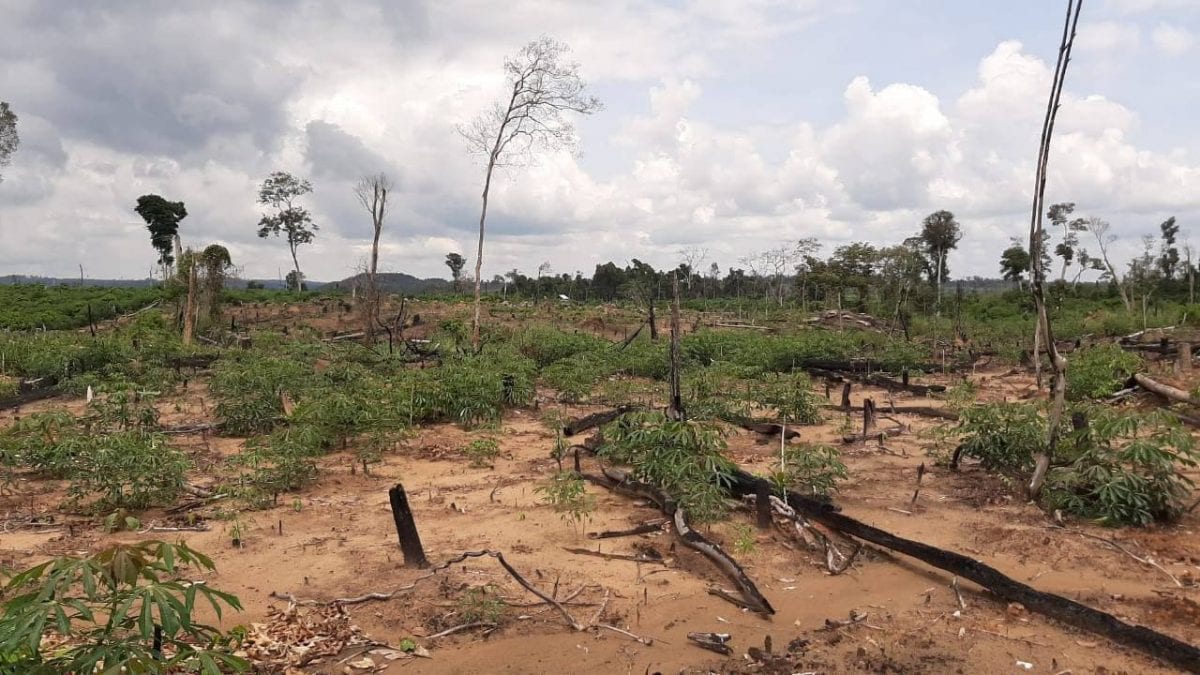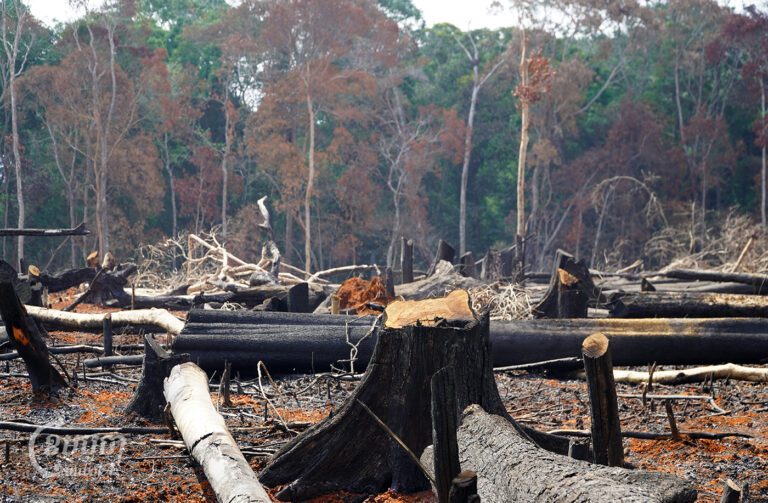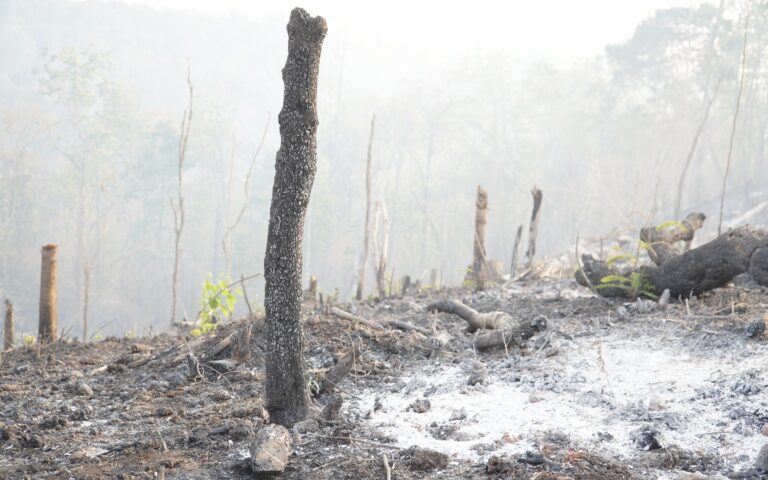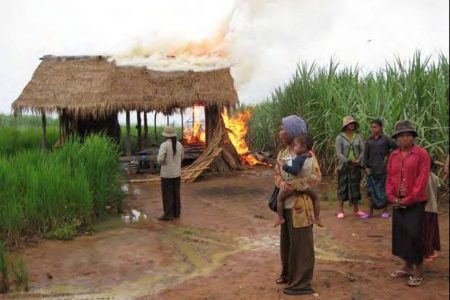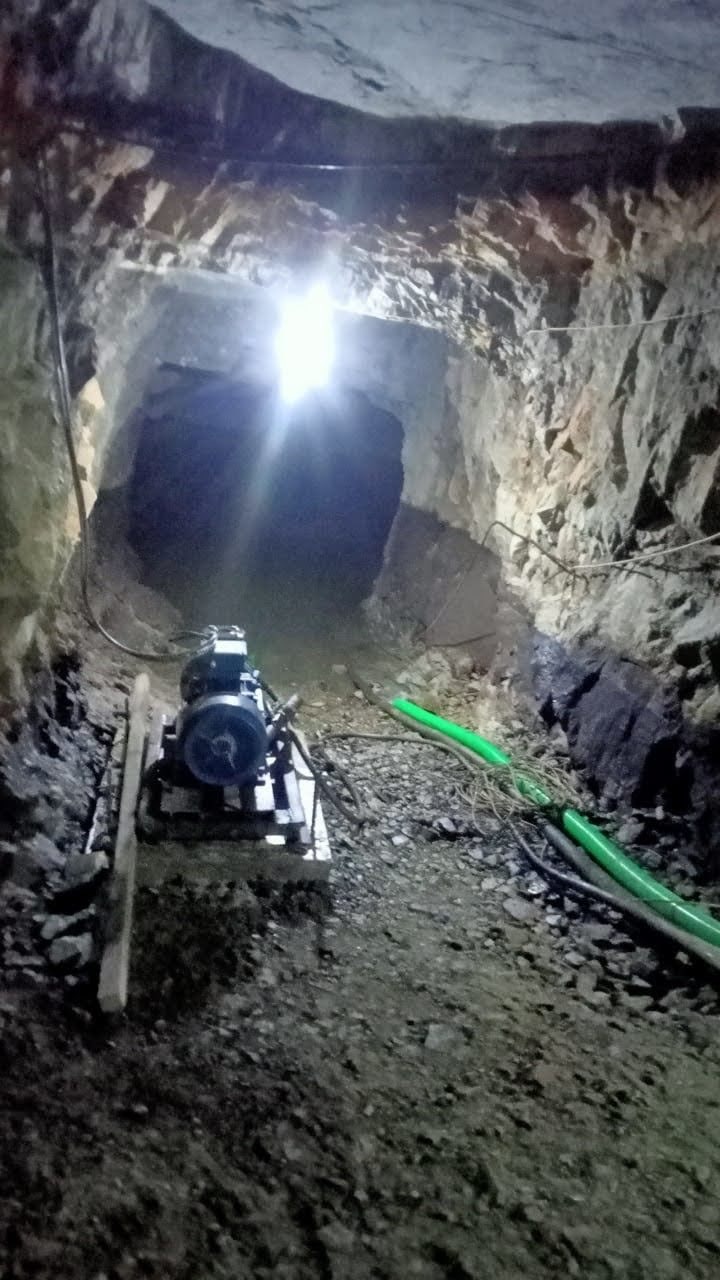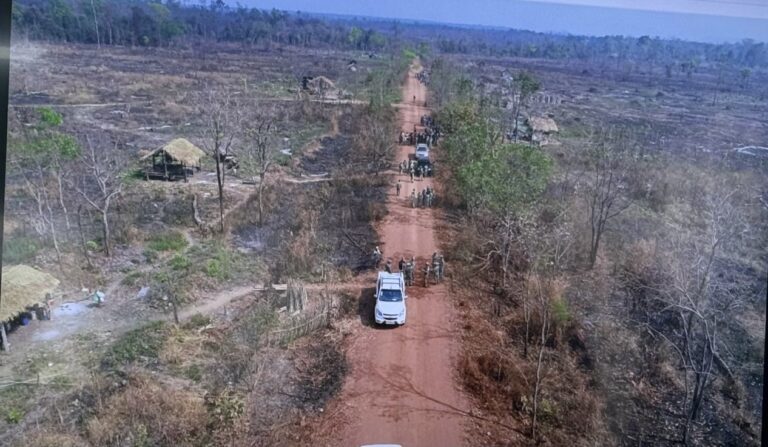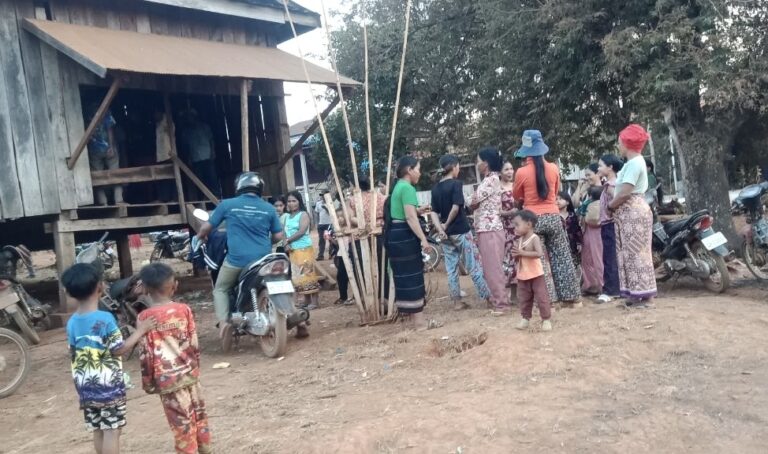Nearly half of an indigenous community forest in Kratie province has been destroyed and cleared by unknown groups and locals accuse provincial authorities of failing to stop the encroachment.
A report by the Cambodian Youth Network (CYN) has found that the protected land has been systematically taken over since 2016. Thus far, more than 1,300 hectares of protected community forest has been illegally cleared and another 460 hectares is under threat.
Located in O’ Kreang commune, Sambo district, the 3000-hectare Phnom Ses community forest is a historical and religious site for indigenous Bunong. In 2008, the area was granted community forest status, which allows local families to manage the area and protects the land from being sold or industrially logged.
According to the report, 169 indigenous Bunong families in Phnom Ses, who live rely on forest products for daily life, now see their livelihood and culture under threat.
Heng Kimhong, Head of Research and Advocacy Program at CYN, called on local authorities to do more to protect the land. The report shows that migrants from other provinces have come in large numbers, clearing just 5 to 10 hectares each for what looks like personal farms. Kimhong said he believes wealthy individuals pay migrants to clear the land, so they can take the valuable timber, and eventually take over the land for plantations. The forest is located next to two Vietnamese-owned rubber plantations covering more than 10,000 hectares — though the land law caps economic land concession (ELC) at 10,000 hectares.
“It is the negligence of the authorities that allowed an illegal invasion and it happens in the form of people occupying the land for living, but actually someone stands behind them to occupy many hectares of land while authorities did not take strong legal action to prevent encroachment,” he said.
Kimhong said CYN will submit the report to the Ministry of Agriculture for intervention.
Ben Linath, Kratie provincial deputy governor and spokesman said that the authorities always work to protect natural resources. But he said he wasn’t aware of the Phnom Ses situation.
“I have never received a report from the community and the community has not reported to the province,” he said. “When the authority hands over the conservative zone to the community, they themselves must participate in protecting and maintaining it and in case they cannot, they have to seek the intervention of the authorities.”
CambodJA has seen two public notices from the Kratie provincial administration from March and August 2020, and one from the Sambo district authority issued in April 2020, noting that all land encroachment and forest clearing in Phnom Ses community forest is illegal and ordering it to end.
In May 2012, Prime Minister Hun Sen suspended the issuance of new ELCs and announced a large-scale review of the process. Four years later, he announced the government would transfer 1 million hectares of former ELCs to the poor. But research from rights group Licadho shows more than 300 concessions totaling nearly 2.2 million hectares, about 12 percent of Cambodia’s total land.
Some companies that have been granted ELCs have been accused of illegal logging outside the land concession as well as forced evictions.
The government charges just $5 per hectare a year for ELCs after the land has been cleared and cultivated, which is then used for agro-industrial crops such as cassava and cashews.
Hea Samoeun, vice president of the Phnom Ses community forest said that losing the land means losing their indigenous way of life. He said they need to protect the traditional forest for future generations.
“We depend on forest products to earn money, the forests are like our rice fields, they are the heart of the livelihood of the Bunong indigenous people. If we lose it we will lose everything that belongs to us,” he said.
Samoeun said community members alone cannot stop the encroachment as sometimes the newcomers clear the land at night.
“Now we do not know who can help us as the authorities cannot solve the issue. I think maybe there are rich people standing behind this encroachment, otherwise they would not dare. Some are encroaching for ownership, but some are clearing for resale,” he said.


